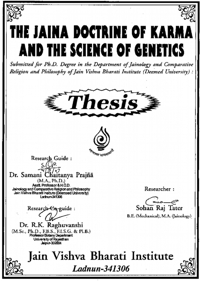Cancer is caused in all or almost all instances by mutation or abnormal activation of cellular genes that control cell growth and cell mitosis. The abnormal genes are called oncognes.
Only a minute fraction of the cells that mutate in the body ever lead to cancer. There are following reasons for this:
- Most mutated cells have less survival capability than normal cells and therefore simply die.
- Only a few of the mutated cells that do survive dose the normal feed back controls that prevents excessive growth.
- Those cells that are potentially cancerous are often, if not usually destroyed by the body's immune system before they grow into cancer. This occurs in the following way
Most mutated cells from abnormal proteins with in their cell bodies because of their altered genes and those proteins then stimulate the body's immune system, causing it to form antibodies or sensitized lymphocytes against the cancerous cells, in this way destroying them. In support of this is the fact that in persons whose immune system has been suppressed, such as those who are taking immuno-suppressant drugs following transplantation of a kidney or a heart, the probability of developing a cancer is multiplied several fold.
But what is it that causes the altered genes, when one realizes that many trillions of new cells are formed each year in the human being, this question should probably better be ased in the following form: Why it is that we do not develop literally millions or billions of mutant cancerous cells? The answer is the incredible precision with which DNA chromosomal strands are replicated in each cell before mitosis takes place and also because the "proof reading process" cuts and repair any abnormal DNA strand before the mitotic process is allowed to proceed. Yet despite all these precautions, probably one newly formed cell in every few millions still has significant mutant characteristics.
Why do cancer cells kill?
The answer to this question is usually very simple. Cancer tissues competes with normal tissues for nutrients. Because cancer cells continue to proliferate indefinitely, their number multiplying day by day, one can readily understand that the cancer cells will soon demand essentially all the nutrition available to the body. As a result the normal tissues gradually suffer nutritive death.[42]
 Prof. Dr. Sohan Raj Tater
Prof. Dr. Sohan Raj Tater
 Doctoral Thesis, JVBU
Doctoral Thesis, JVBU